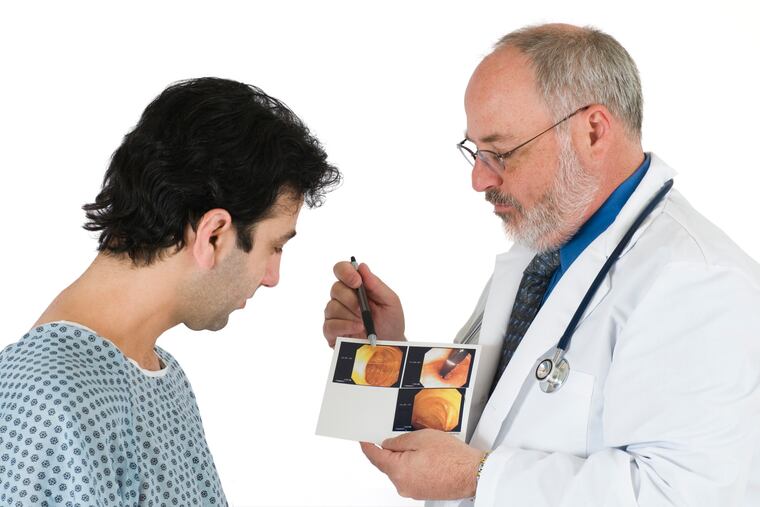My patient’s ‘routine’ colonoscopy wasn’t so routine. Here’s how I should have prepared him.
It may have been less stressful if I had prepared him a bit more for this unlikely outcome, and how it is usually managed.

One of my patients was recently in for a follow-up visit, and told me a distressing story.
Having turned 50, he had his routine colonoscopy as I had suggested, as any diligent doctor would. At his age, with no cancer risk factors, I never imagined that the gastroenterologist would find a large, pre-malignant polyp in his colon. His prognosis is excellent and careful follow-up was arranged, yet it was a terrifying experience for him.
It may have been less stressful if I had prepared him a bit more for this unlikely outcome, and how it is usually managed.
The last time you visited your doctor, most likely there was some discussion of such screening tests as colonoscopy, pap smear, bloodwork, prostate evaluation, mammography or low-dose CT scanning for lung cancer. These tests are part of routine care, and are done in order to prevent illness, or detect it at an earlier, curable or treatable stage.
We use the word “routine” casually, as most of the time the tests are normal and provide reassurance. An abnormal result, though, is far from routine. Although unlikely, you should be aware of that possibility and how it will be addressed.
When your doctor orders a screening test, the conversation will often focus on the timing, or when you are “due” for the test, along with where to get it. No one wants to imagine having an abnormality, and hopefully you never will.
When a test does reveal something abnormal, stress and anxiety can make it difficult to take in new information and make follow-up plans. That is why it is best to have a frank discussion with your doctor before you get the screening test done. The conversation does not have to be detailed; the goal is mostly to reassure you that you will be well cared for, no matter what the test shows.
It is also helpful to know when and how you will be contacted about the result, as well as the most expedient way to reach your doctor with questions or guidance on next steps. Make sure a close friend or supportive family member knows that you are having the test, as well.
Remember, screening is one of our best opportunities to prevent serious illness, so don’t let the unlikely chance of an abnormality keep you from following screening guidelines. Problems discovered during screening are most often treatable. Just as with so many other things in life, make sure you are well-prepared for all possibilities.
Jeffrey Millstein is a primary-care physician and medical director for patient experience-regional practices at Penn Medicine.